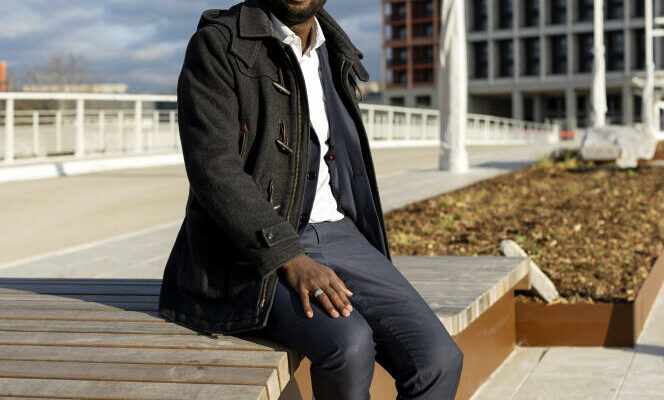Works blocking the main roads, weekend closures of the RER D and metro line 14… Soon, all this should be nothing more than a bad memory for the inhabitants of L’Ile-Saint-Denis (Seine-Saint -Denis), town 7 kilometers long and 250 meters wide, wedged between two arms of the Seine, and the towns of Saint-Denis, Saint-Ouen and Villeneuve-la-Garenne.
Before long, the concrete factory and its truck norias, which polluted the banks, will also be gone. And with them also disappeared the discontent of the islanders (there were more than 8,600 at the end of 2021) and this feeling of experiencing an endless construction site due to the preparation of the Olympic Games (OG). Mohamed Gnabaly is, in any case, convinced of his ” chance “ : “Without the Olympics, I would never have been able to transform the city as we are going to do”says the environmentalist mayor of the town.
And to list the facilities linked to the Games from which the small town will benefit: the Olympic village welcoming the athletes, which will be transformed into 320 housing units and a student residence, a nautical base, a city of arts, a car-free footbridge linking the island in the village part of Saint-Denis, a renovated sports complex with swimming pool. But also infrastructure and works that the municipality has been waiting for for fifteen years: a noise barrier along the A86, the burying of high voltage lines, the development of 14 kilometers of banks.
The young elected official (38 years old) worked hard to overcome the reluctance of part of his environmentalist majority and set his conditions. “The team was divided on whether to say yes to hosting the Olympics, and the opposition denounced the enormity of their cost. The promise of the event served as leverage for me”, he says.
He negotiated the thermal renovation of the social park, a second bus line and the restructuring of the Marcel-Paul city, with the demolition of three dilapidated towers plagued by endemic drug trafficking. The stakes were high for this town of 85 nationalities, which has 60% social housing, where the poverty rate reaches 31% and which is better known for its wastelands left by the Galeries Lafayette and the Printemps warehouses than for its ornithological reserve.
In a territory – that of Plaine commune – where the elected official knows that he weighs little, “Mohamed has made good money and gained political influence”, remarks Stéphane Troussel (Socialist Party), president of the department of Seine-Saint-Denis. The trajectory of this Franco-Senegalese, third of six siblings – father a theologian, became imam of Ile-Saint-Denis, mother social mediator at Goutte d’or, in Paris – did not, however, destin him to politics.
You have 60% of this article left to read. The rest is reserved for subscribers.
